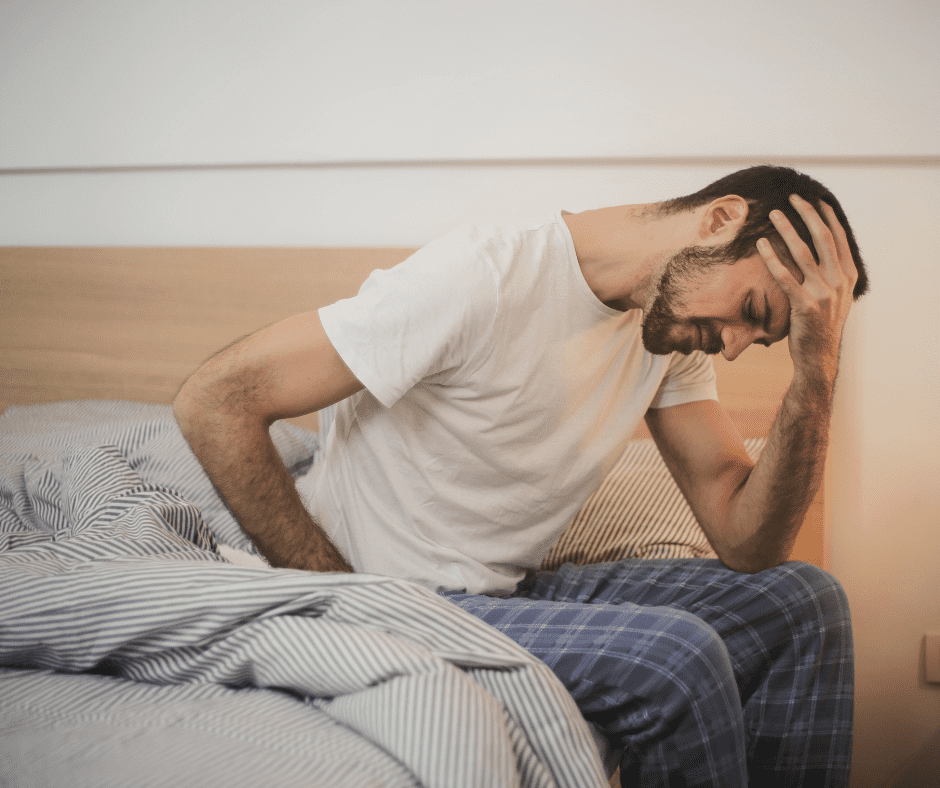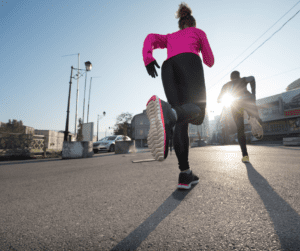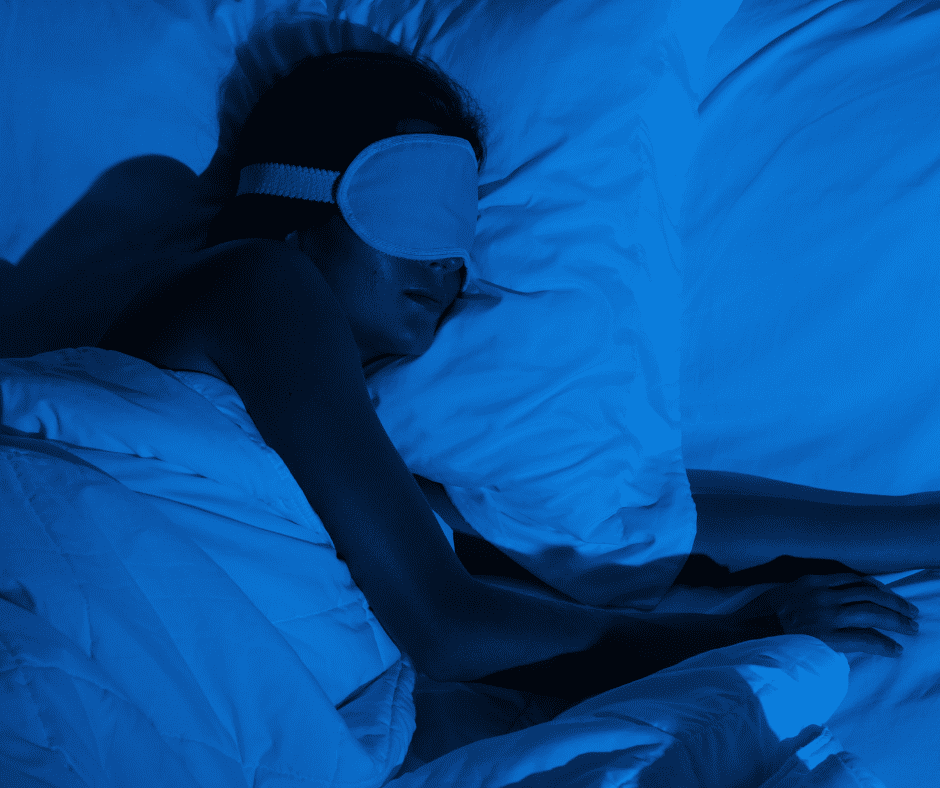As runners, we all know the pressure of trying to balance work, family, and of course training… Whether it’s setting an alarm for 4:30 am to fit in a run before the school drop off or fitting in a strength class after you’ve put the kids to bed.
Let’s face it, getting a full night’s sleep is often traded to fit those extra miles into the day…
We hate to break it to you, but it’s time to change things up.
Not getting an adequate amount of sleep affects both your physical and cognitive function which will have a significant impact on your running preparation, performance, and recovery.
Numerous studies show us that improved brain processing functions in athletes are linked to athletes who prioritize sleep, this is because decision-making and adaptability are key factors to improved performance.
On that note, let’s have a look at a few different studies that all prove why athletes, including runners, need to prioritize sleep…

Studies Proving Sleep Is Essential For Athletes
Study Number One
A Stanford University Study looked at men’s basketball players who slept for 10 hours a night.
Conclusion: Their shooting improved by 9% and their sprint time improved.
From this study, we can understand that improvements in specific measures of basketball performance after sleep extension indicate that optimal sleep is likely beneficial in reaching peak athletic performance.
Study Number Two
In this study female and male tennis players who increased their sleep by just 2 hours a night taking it to 9 hours total were able to improve their serves by a whole 36%.
Study Number Three
This study summarizes both the detrimental effects of sleep deprivation in athletes and the benefits of sleep extension on athletic performance. It had a look at swimmers who aimed for 10 hours of sleep and also saw many performance improvements.
The swimmer’s reaction times off the diving blocks were faster, turn times were improved, and 15-meter sprint times also improved.
Study Number Four
This study analyzed the effect of acute sleep deprivation on skeletal muscle protein synthesis and the hormonal environment.

Conclusions: Sleep deprivation promotes a catabolic hormonal environment. After one night of total sleep deprivation, healthy young adults showed an 18% decrease in muscle protein synthesis, a 24% decrease in testosterone, and a 21% increase in cortisol (your primary stress hormone).
Let’s have a look at the effect of a lack of a good night’s rest on two hormones vital to athletic performance…
Sleep & Hormones For Athletic Performance
NREM Sleep – Growth hormone
It’s important to remember that growth hormone release is not continuous; it is released in several ‘bursts’ which are controlled by two other hormones.
Those two hormones are released from the hypothalamus:
- Growth hormone-releasing hormone, which stimulates the pituitary to release growth hormone.
- Somatostatin inhibits that release.
Growth hormone levels are increased by sleep. This is achieved early in the night in the slow wave delta sleep stage.
This is essential because the growth hormone stimulates cell reproduction and regeneration and improves brain function, neuroprotection and neurogenesis.
REM Sleep – Testosterone
The majority of testosterone release happens during REM sleep.
REM sleep happens about an hour to an hour and a half after falling asleep, it’s when you have vivid dreams.
Not getting enough REM sleep can lead to low testosterone levels affecting various essential functionalities in both men and women.
Now that we know what happens when we don’t get enough sleep, let’s have a look at why it’s even more vital to get enough sleep for athletes…
Why Sleep Is So Important For Athletes
Sleep is one of the non-negotiable pillars of recovery, training, and ensuring you get to the next workout feeling good.
Improving this one part of your life can make a world of a difference.
Benefits of getting a good night’s sleep for runners:
- Build Muscle & Repair Tissue
- Athletic Performance
- Hormonal Balance
- Water Reabsorption
- Concentration
- Reduce Injury Risk
- Immunity Boost
Build Muscle & Repair Tissue
When you sleep deeply, Human Growth Hormone is released.
HGH aids in repairing tissue, building muscle, strengthening bones, and converting fat to fuel.
When you run, you aren’t just building your stamina and strength; you’re also breaking your body down, causing a tiny amount of tissue damage with every step.
Allowing yourself time to recover after your runs is what makes it possible for you to come back better adapted-for your next run.
HGH also aids in healing your muscle tissue after a running injury. This is why sleep is a VITAL component of your recovery and should be taken as seriously as your training.
Articles often mention that HGH can contribute to slowing down the aging process… research supporting these claims is limited.
This hormone also stimulates your liver to make an insulin-like protein that produces cartilage cells, which contribute to your bone and organ health.
Speaking of bone health, we put together an article teaching you more about why bone health is so important and how to take care of your bones as you age. It’s called: Bone Health: What You Absolutely NEED To Know As You Get Older, you can read it here.
Athletic Performance
Getting enough sleep is crucial for athletic performance.
All the studies above show that good sleep can improve speed, accuracy, and reaction time in athletes.
As you know, carbohydrates help provide a ready source of energy for the body – when carbs are broken down by the body, the component sugars are stored in the muscles as glycogen, (waiting to be used up during the race).
Not getting enough sleep reduces the body’s ability to store those carbohydrates, which means less glycogen will be stored.
Hormonal Balance
By not getting enough sleep, your body produces less Human Growth Hormone and produces more Cortisol. This makes it very hard for your body to recover properly.
Ghrelin hormone: Famously known as the “hunger hormone” because of its stimulatory effects on food intake, fat deposition, and growth hormone release.
Leptin hormone: Regulates energy balance, suppressing food intake and thereby inducing weight loss.
When we don’t get enough sleep, we have an increase in Ghrelin and a decrease in Leptin. This results in us eating more, even if we don’t need to because we don’t have a strong signal to stop.
Water Reabsorption
Drinking water is essential. H2O accounts for up to 60% of the human body, and it helps with a wide variety of bodily functions, like cell growth, waste removal, and digestion.
One of the ways getting a good night’s sleep can benefit your running is…water reabsorption. When you sleep, your kidney balances water, sodium, and other electrolytes. Without enough water, the kidneys can’t balance electrolytes properly.
Concentration
The right amount of sleep affects your concentration.
When people don’t get enough sleep, their attention and concentration abilities decline. Their reaction time lengthens, they’re inattentive, and they don’t respond as well to environmental signals.
Reduce Injury Risk
I think I can speak on behalf of all runners when I say that there is no greater fear than a potential running injury during marathon season.
When you’re training for a specific event, (particularly in the 6-8 weeks of peak training) try and prioritize sleep and try to get 30 to 60 minutes more than you would normally get.
That little bit of extra sleep will make a big difference to your recovery.
Immunity Boost
Let’s face it, no one want’s to be a week away from race day with the flu… Getting sufficient hours of high-quality sleep enables a well-balanced immune defense that features strong innate and adaptive immunity.
If after reading all these benefits you still don’t get the hint… let’s make it easier for you to understand.

Should Runners Sleep More?
Some sleep experts recommend that adults should sleep one hour for every two hours awake and runners should add one extra minute for every mile run during the week.
We believe that for a lot of people this is a really difficult thing to do, so we are not saying that you should be getting into bed at 8 p.m., however… you need to understand that the later you get to sleep after 10 o’clock, the more compromised your hormonal release becomes.
What runners should aim to do is avoid sleep inconsistency by getting one night of 8 hours of sleep a week, 2 nights of 6 hours, and the rest of the week, getting 5 hours…
Rather try to get as much as possible as consistently as possible.
Your main goal should be to ensure you have a good quality sleep. We have written an article about improving sleep and what you should be doing before you sleep to ensure the best possible night’s sleep. You can read it here.



Comments are closed.